Faculty Spotlight
Leah Macfadyen, PhD
-
- Coordinator, Curriculum & Instruction, and Instructor, Master of Educational Technology Program
- Assistant Professor of Teaching, Department of Language & Literacy Education

MET Courses
ETEC 500, ETEC 520, ETEC 542, ETEC 543, ETEC 590
Website
Student Perspective
Just would like to mention how I appreciate your approach to the course and our group, in every way. Thanks for the breadth and depth of content presented, the clarity of instructions, useful feedback and the personal tone used in interactions with us. All that is both motivating and refreshing within academia!
– Jiri Karas, ETEC 543, 2021
Fun Facts
- My first degrees were in biochemistry and microbial genetics, and for many years I thought I would spend my life being a lab-based scientist.
- I spend some months every year working remotely from New Zealand (though you probably won’t notice).
Sum up your area of research/interest in a tweet (i.e., maximum 280 characters)!
Online learning (virtual learning is real learning!). Learning analytics (make better use of data to improve teaching learning!). Transformative global education (challenging assumptions, one learner at a time).
What is your approach to teaching?
I believe that teaching is a relationship, and that good teaching demands the investment of time, effort and self in the development of that relationship. I do find the Community of Inquiry framework (Garrison et al., 2000) especially useful because it emphasizes the importance of ‘teacher presence’ and ‘social presence’ in effective learning environments. So whether I am in the classroom, on a field course, or online, I am deliberate in my efforts to develop good relationships with learners. I try to make time and space for activities that allow us all to develop and express our authentic selves (to the extent that we choose to), and to engage authentically with each other. For me this also involves recognizing that learners – and especially our working professional learners with family and other commitments – have full and busy lives, and being willing to accommodate that in timelines and course plans.
What have you learned from teaching in the MET program?
I am always learning from MET students (sometimes I tell people I am in Grade 45). I especially appreciate that working with learners who are professionals in educational settings means that I have a one-degree connection to Canadian and international learners of all kinds. I’ve learned a lot about contemporary issues and curricula across Canada and globally, and most recently heard lots of firsthand reporting about the challenges of remote teaching in the COVID era.
What assignment do you most look forward to receiving from your students? Why?
In my courses I usually try hard to design assignments so that students can craft them to be very relevant to their own professional contexts. In ETEC 543, the major final project is a ‘choose your own adventure’ option where students can opt to pursue a learning analytics project, topic or theme that they are most interested in. I’ve received excellent analytic essays on the controversies of data ethics, projects experimenting with data visualization to share learning data more effectively with teaching colleagues, network analyses of communications in our own course, learning analytics implementation plans for various different contexts (which some have later presented to school leadership)…always different, always fun and interesting to read.
What advice would you give to a current or prospective MET student?
The MET program is a marathon, not a sprint. And you will learn more and achieve better understanding if you allow yourself to proceed through courses one at a time, rather than loading yourselves up with multiple courses. Give yourself the time to read, think, debate, write, digest. There’s lots to learn.
Images
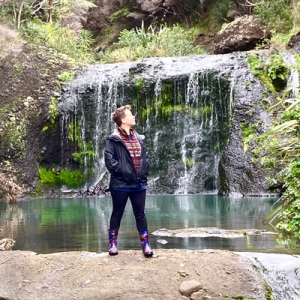
In my Aotearoa/NZ home, 2021
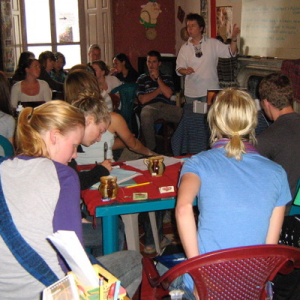
Teaching global issues to UBC students in Guatemala, 2009
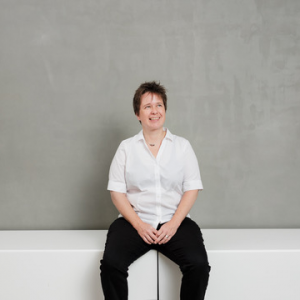
MET photoshoot, 2019
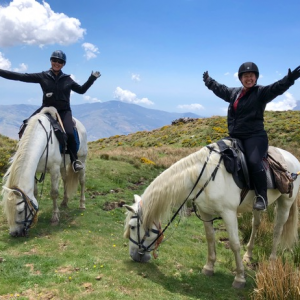
Riding in the Sierra Nevada, Spain 2019
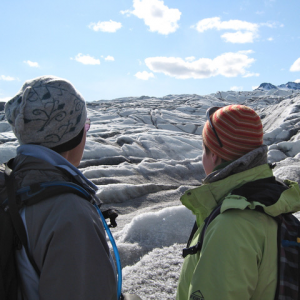
Leading a UBC field course to Iceland on science and sustainability, 2012